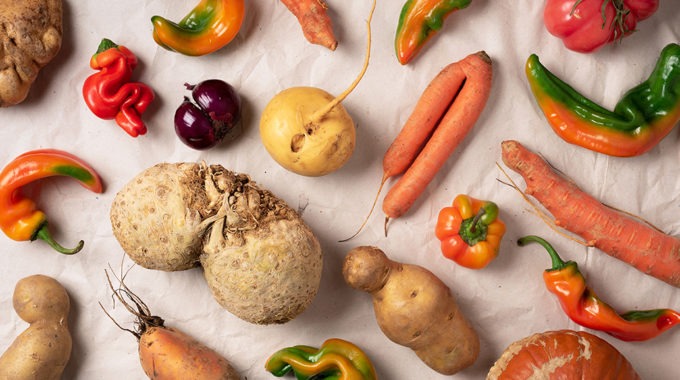Plugging ugly is key to sales success
Few marketers would recommend that clients call their products ugly — but recent research from the University of British Columbia Sauder School of Business in Canada has found that, when it comes to selling misshapen fruits and vegetables, labelling them as “ugly” can actually make consumers more likely to buy them.
Perfectly edible fresh produce is often turned away from supermarket shelves because it doesn’t meet the optimal consumer and retailer criteria, such as shape, size and colour. Twenty-five percent of Australian fruits and vegetables never leave the farm simply because of their appearance, and globally, 1.4 billion hectares of land and 25 percent of the world’s fresh water are used to grow produce that will later be thrown away.
In 2014, French supermarket chain Intermarché garnered international headlines when it began marketing misshapen produce as “ugly”. Since then, food retailers around the world have launched campaigns to sell “imperfect produce” or “produce with personality”.
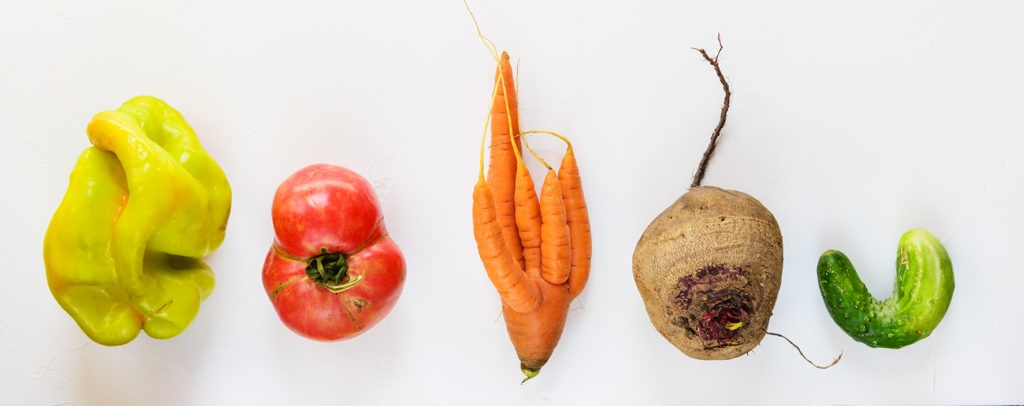
Some have been successful, while others withered on the vine – but until now, researchers hadn’t been able to adequately explain why consumers reject imperfect produce, or what marketing approach was most likely to whet their appetites.
For this research, seven studies were conducted that examined people’s preconceptions about misshapen foods. Interestingly, researchers found that consumers expected imperfect produce to be less tasty and less nutritious than more attractive foods.
“People attach a beauty premium to attractive objects, and believe they have all kinds of positive attributes,” says PhD student Siddhanth Mookerjee, who co-authored the study.
“Likewise, there’s often an ugliness penalty effect which negatively impacts perceptions. We found people also use appearance to judge unattractive produce and make these negative inferences, even though there’s no reason to believe it’s less tasty or healthy.”
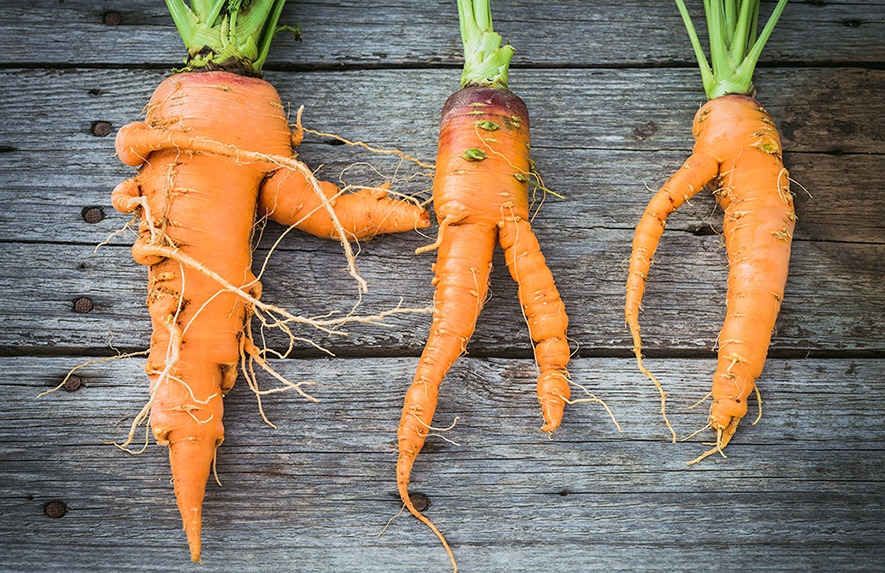
But it’s not all bad news for unattractive foods. The researchers also found that when the produce is labelled “ugly”, consumer hesitancy disappears – and it’s not because of humour or originality. Calling items “ugly” signals to consumers that the only difference between items is aesthetic, explains Mookerjee, which makes them aware of their bias and significantly increases their willingness to buy the less attractive produce.
“We’re pointing to the source of the rejection, to the flaw, which effectively de-biases the consumer,” Mookerjee says. “It makes people aware of the limited nature of their objection to the unattractive produce and makes it clear to consumers that there are no other deficiencies in the produce other than attractiveness.”
The researchers tested their hypothesis with multiple field studies, including one at a local farmers’ market where they sold both attractive and unattractive vegies. They not only found customers spent more on the misshapen produce when it was labelled “ugly”; they also spent more on ugly produce than they did on conventionally “beautiful” foods.
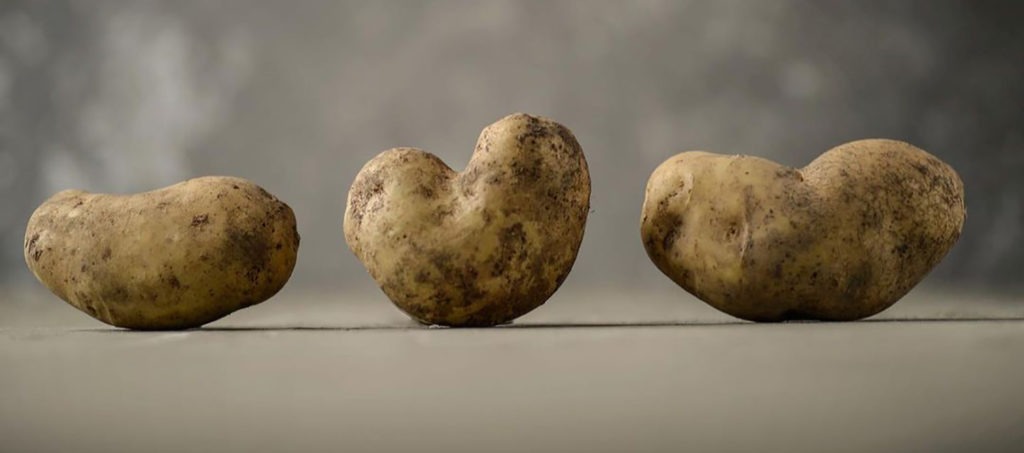
Further, even though the ugly produce was sold at a 25 percent discount, it turned out to be more profitable for sellers, as the cost of acquiring the ugly produce was lower.
However, there is a sweet spot when it comes to discounting ugly produce, cautions Mookerjee. If the price reduction was too steep — 60 percent rather than 20 percent — participants expected the “ugly” foods to be of lower quality.
The study also found that “ugly” labelling is more effective than other labels, such as “imperfect” or “odd”. Although grocery store owners and managers who were interviewed preferred the “imperfect” label, the researchers found “ugly” labelling was more effective at driving choice of unattractive produce and generating click-throughs in online ads.
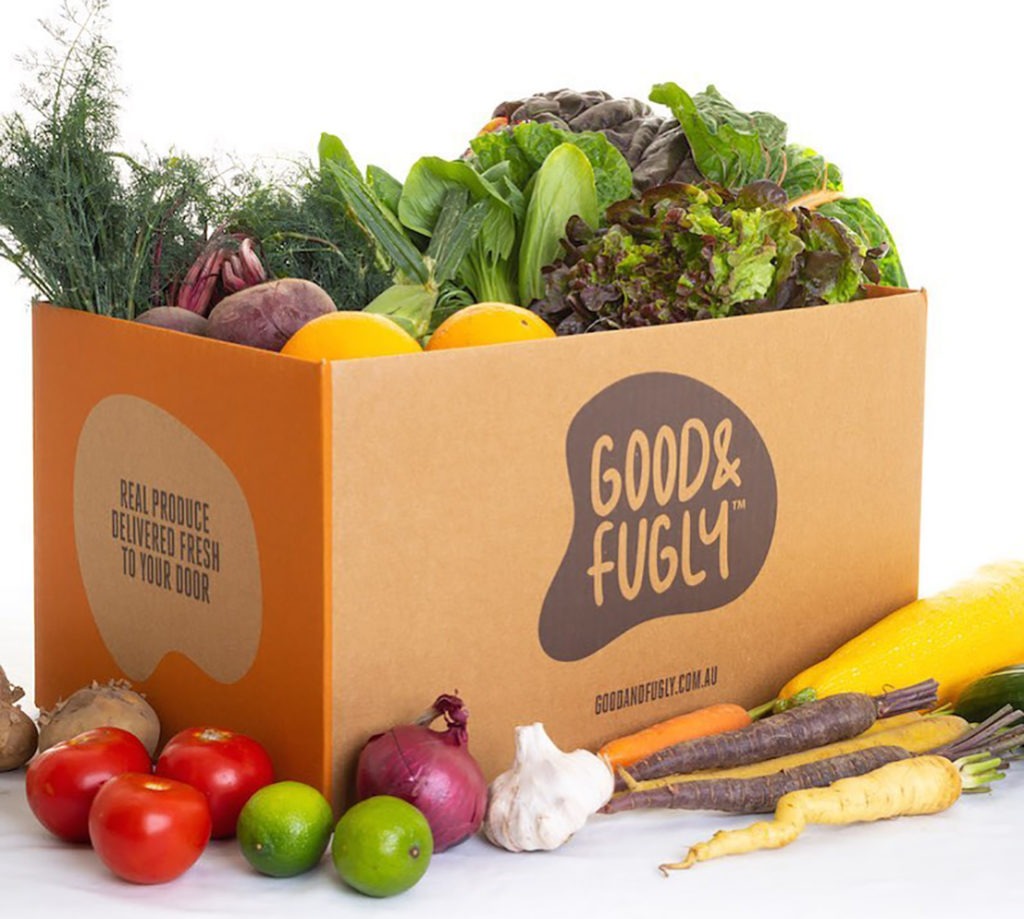
Love ugly foods? What about fugly ones? Good & Fugly is helping to reduce the unnecessary food waste created by the unrealistic beauty standards of supermarkets that make rejects out of the perfectly imperfect by selling fugly foods and delivering them direct to your door.
You can also support our growers by buying fresh produce from your local farmers’ market, which values every piece of fruit and veg, regardless of its appearance. To find a farmers’ market near you, head to farmersmarkets.org.au


